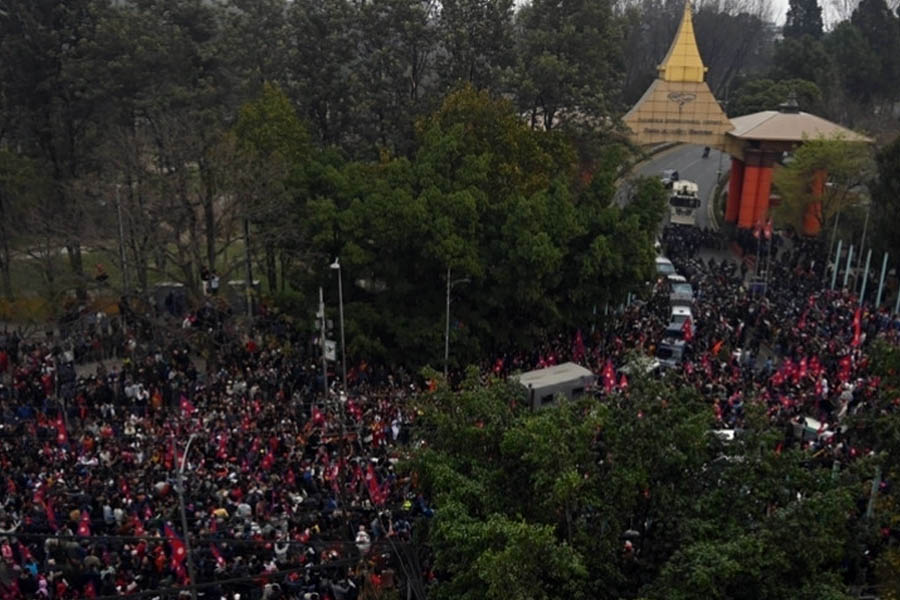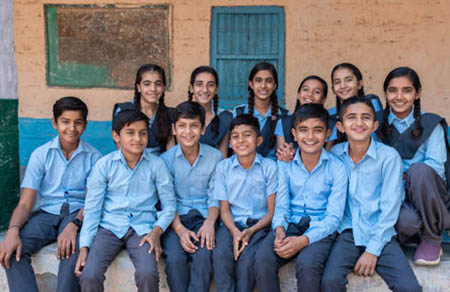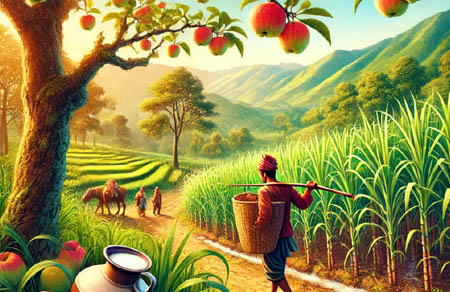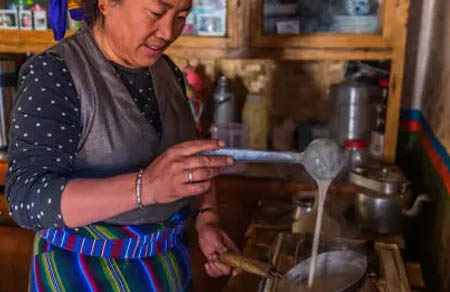
Nepal's Political Crossroads: Monarchy vs. Democracy
March 18, 2025Nepal, a nation nestled in the Himalayas, is once again at a political crossroads. The winds of change are blowing, and the debate between restoring the monarchy and strengthening the democratic republic is intensifying. This article delves into the current political dynamics, the role of foreign influences, and the internal divisions shaping Nepal's future.
The Resurgence of Monarchy
In 2008, Nepal formally abolished its 240-year-old monarchy and declared itself a federal democratic republic. However, recent years have seen a growing chorus of voices advocating for the restoration of the monarchy. Supporters argue that the monarchy symbolizes national unity, dignity, and Nepal's Hindu identity. They believe that the current democratic system has failed to deliver stability, economic growth, and good governance.
"The unity of the country should not be disturbed under any circumstances," emphasized Nepali Congress President Sher Bahadur Deuba, highlighting the delicate balance Nepal must maintain amidst these debates.
Former King Gyanendra Shah, who was ousted in 2008, has re-emerged as a focal point for monarchist movements. His recent public appearances have drawn significant crowds, reigniting discussions about the monarchy's potential return. However, the constitution of Nepal, adopted in 2015, firmly establishes the country as a secular, federal democratic republic, leaving little legal room for a monarchy.
Amidst this resurgence, the Rastriya Prajatantra Party (RPP) is actively pushing for the restoration of the Shah dynasty. The party's Central Working Committee meeting, currently underway in Kathmandu, is focusing on strengthening the movement. However, internal disagreements have surfaced, with RPP Chairman Rajendra Lingden expressing dissatisfaction over being included in the movement's steering committee without prior consultation. Similarly, former minister Keshar Bahadur Bista has raised concerns about the committee's formation, stating that he was not consulted before being named a member. The committee, led by former Panchayat chairman Nawaraj Subedi, has sparked controversy, as some members feel sidelined by the decision to appoint an 86-year-old former Panchayat leader to lead the movement. Despite these disagreements, the committee aims to unify monarchists and push for the restoration of the monarchy, emphasizing peace and non-violence.
Democratic Republic: Challenges and Criticisms
While the monarchy has its proponents, many Nepalis remain committed to the democratic republic. The Nepali Congress, one of the country's largest political parties, has reiterated its support for federalism and democratic governance. However, even within democratic circles, there is recognition of the system's shortcomings.
"Federalism will not be strengthened by imposing taxes on the people alone. It is necessary to connect the people to production," said Congress Vice President Dhanraj Gurung, underscoring the need for economic reforms alongside political ones.
Critics of the monarchy argue that reverting to a monarchical system would be a step backward. They point to the challenges of the past, including autocratic rule and limited civil liberties, as reasons to strengthen the current democratic framework. Instead of seeking alternatives, they advocate for reforms within the existing system to address issues like corruption, unemployment, and political instability.
In the House of Representatives, Rastriya Swatantra Party MP Sobita Gautam has criticized the government for protecting individuals involved in cooperative fraud. Speaking during a discussion on a bill to amend Nepal's Cooperative Acts, Gautam highlighted the lack of effective regulation and political interference as key issues plaguing cooperatives. She argued that the current bill, which proposes a centralized authority for cooperatives, will not resolve the crisis, as the authority lacks autonomy and remains under government control. Gautam pointed out that around 7,000 cooperatives in Nepal are in crisis, with political leaders exploiting them for personal gain. She called for a national-level regulatory body and stricter oversight by the National Bank to address the systemic issues. Gautam also accused the government of using cooperative fraud as a tool to retaliate against those who speak out against corruption, further undermining public trust in the system.
Foreign Influence and Geopolitical Dynamics
Nepal's political landscape is further complicated by the involvement of foreign powers, particularly India. Some analysts suggest that India's support for the monarchy is tied to its broader geopolitical interests, including the promotion of Hindu nationalism. However, Nepal's constitution enshrines secularism, and any shift toward a Hindu state would require broad public consensus.
"The role of republicans will be discussed in the context of the demonstrations by monarchy supporters," a source from President Deuba's secretariat revealed, hinting at the ongoing political maneuvering.
Foreign diplomats have been actively engaging with Nepali leaders, reflecting the international community's interest in Nepal's political stability. The country's strategic location between India and China makes it a focal point for regional power dynamics.
Internal Divisions and the Path Forward
Nepal's society is deeply divided on the issue of monarchy versus democracy. While some view the monarchy as a unifying force, others see it as a relic of the past. The debate is not merely political but also cultural and religious, with implications for Nepal's identity as a secular state.
The Socialist Front, comprising several leftist parties, has announced plans to hold demonstrations in Kathmandu to protect the achievements of the federal democratic republic. "We are not going to demonstrate against anyone. We are active to protect the achievements and achieve more," said Maoist Chairman Pushpa Kamal Dahal.
"The return of the monarchy is not possible for emotional reasons alone. The solution to Nepal's problems must be sought within democracy," emphasized political analysts.
As Nepal navigates this complex political terrain, the focus must remain on strengthening democratic institutions, promoting economic development, and ensuring social cohesion. The monarchy debate, while significant, should not overshadow the urgent need for governance reforms and inclusive growth.
Conclusion
Nepal stands at a critical juncture in its political history. The debate between monarchy and democracy reflects deeper societal divisions and the challenges of implementing a federal democratic system. While the monarchy holds emotional and historical significance for some, the path forward lies in addressing the shortcomings of the current system and building a stable, prosperous, and inclusive Nepal.
As the nation grapples with these issues, the role of leadership, transparency, and accountability will be paramount. Whether Nepal chooses to revisit its past or forge ahead with democratic reforms, the ultimate goal must be to serve the aspirations of its people and ensure a brighter future for generations to come.
Monarchy vs. Democracy: political turmoil and foreign influences
Discover the full story behind Nepal's political crossroads and what it means for the future of the region. Read More Here.
Will Nepal Return to Monarchy or Strengthen Its Democracy? Dive into the Political Turmoil, Foreign Influences, and the Future of the Himalayan Nation.
Subscribe for UpdatesJoin our growing community for timely updates.
Read More From Us
- 🌟🌟🌟🌟🌟 For more International Breaking News visit us at International News
- 🌟🌟🌟🌟 For More Russia-Ukraine War updates, click here
- 🌟🌟🌟🌟🌟 For more International Trade Business news, hit here
Tags:"Will Nepal return to monarchy or strengthen its democracy? Dive into the political turmoil, foreign influences, and the future of the Himalayan nation. 🌏👑 #NepalPolitics #MonarchyVsDemocracy #HinduNationDebate #NepalUpdates #KathmanduNews #NepalFuture #PoliticalCrossroads #Nepal2023 #GlobalPostHeadline [Link]"
Thank you for reading: globalpostheadline.com





